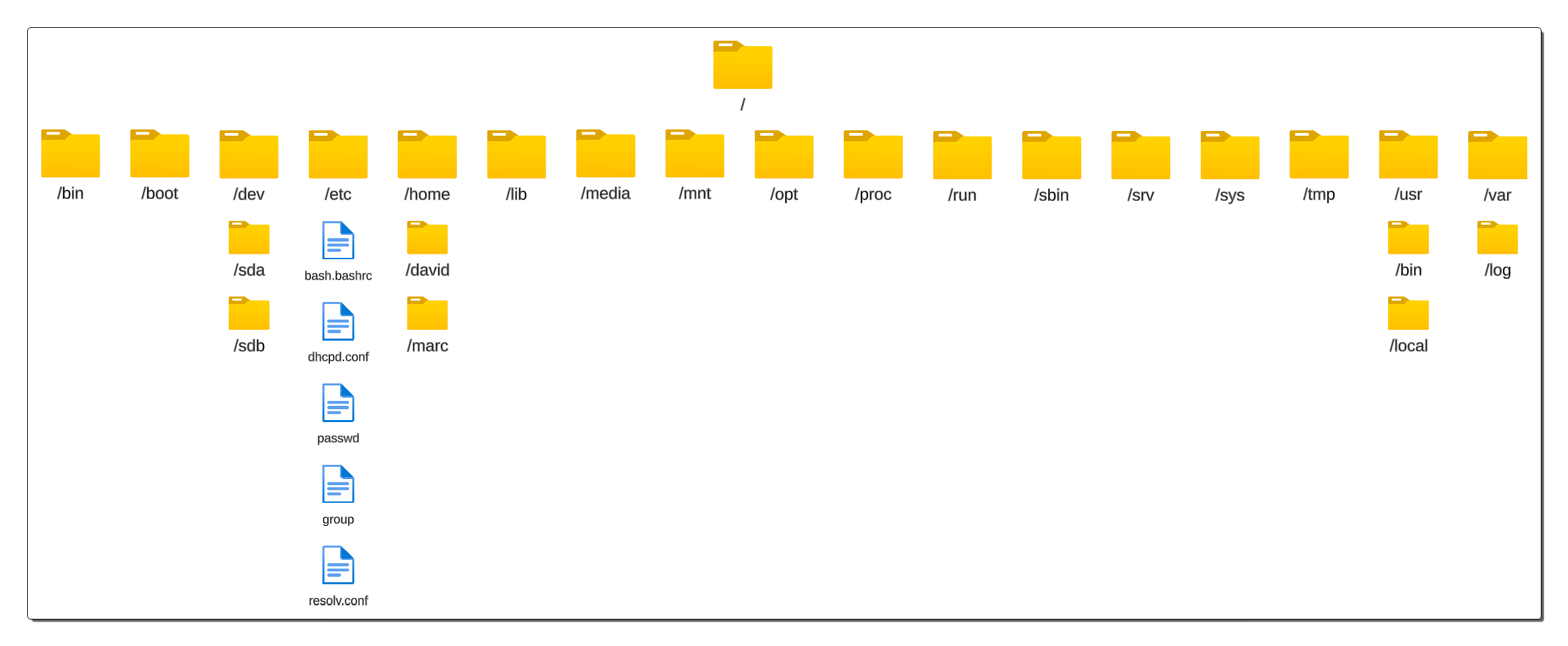Linux File System
Categories:
2 minute read

Common level 1 directories found in the Linux filesystem:
/: otherwise known as root, the home directory for the root user, the administrative superuser in Linux.
/bin: essential binaries (executable programs) needed for basic system functioning and user commands.
/boot: files related to the boot process, such as the Linux kernel, initial RAM disk (initrd), and boot loader configuration.
/dev: device files that represent and allow access to various devices attached to the system, such as hard drives, terminals, printers, and more.
/etc: system-wide configuration files that define the behavior and settings of various programs and services on the system.
/home: user home directories, where individual users can store their personal files and configurations.
/lib: essential shared libraries (code files) needed by programs during runtime.
/media: Typically used as a mount point for removable media devices such as USB drives, CDs, or DVDs.
/mnt: Often used as a temporary mount point for mounting filesystems or devices.
/opt: Used for installing optional or third-party software packages. It typically contains self-contained software applications or libraries.
/proc: A virtual filesystem that provides information about running processes and system status. It exposes various system and process-related details as files and directories.
/run: runtime data that needs to be available during system startup and across reboots.
/sbin: essential system binaries used for system administration tasks. These binaries generally require administrative privileges to execute.
/srv: Intended for storing data files specific to particular services provided by the system.
/sys: Another virtual filesystem that provides information about the system’s hardware devices, drivers, and kernel settings.
/tmp: A temporary directory where programs and users can store temporary files. The contents of this directory are typically cleared on system reboot.
/usr: user-related files and directories. It includes various subdirectories such as /usr/bin, /usr/lib, /usr/share
/var: variable data files, such as logs, spool files, temporary files, and other data that changes during system operation.
Feedback
Was this page helpful?
Glad to hear it!
Sorry to hear that.